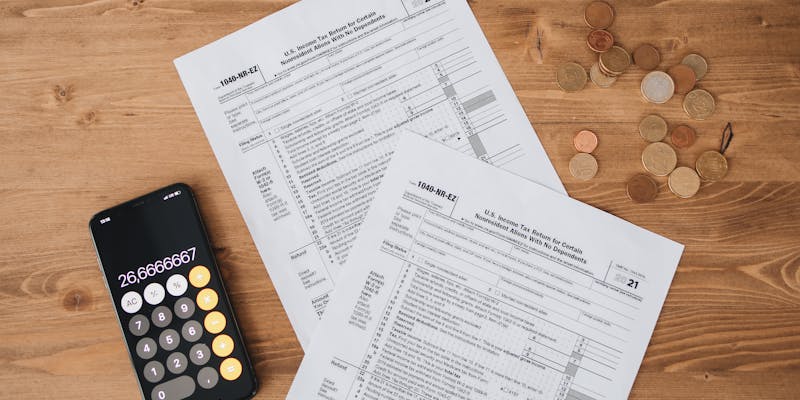So, you've heard the term "Health Reimbursement Arrangement" (HRA) tossed around in discussions about healthcare. But what exactly is it? And how does it work? Don't worry; we're here to demystify HRAs for you.
What Is a Health Reimbursement Arrangement (HRA)?
Think of an HRA as your safety net for healthcare expenses, courtesy of your employer. It's a benefit designed to ease the burden of medical costs by providing you with funds specifically allocated for this purpose.
Essentially, your employer sets aside a certain amount of money into your HRA account each year, which you can then use to cover eligible medical expenses. It's like having a dedicated healthcare fund that's separate from your regular paycheck.
How Does It Work?
Let's break it down step by step. First, your employer determines how much money they'll contribute to your HRA. This amount is usually predetermined and may vary depending on factors like your employment status or the company's healthcare policy.
Once the funds are in your HRA account, you have the freedom to use them to pay for qualified medical expenses. When you incur such expenses, you pay for them upfront and then submit a claim for reimbursement from your HRA account. Your employer will then review your claim and, if approved, reimburse you for the eligible expenses. It's a straightforward process that puts you in control of managing your healthcare finances.
Types of HRAs
Now, let's explore the different flavors of HRAs available to you:
Integrated HRA: This type of HRA is typically tied to a group health insurance plan provided by your employer. It complements your insurance coverage by covering expenses not reimbursed by your insurance, such as deductibles, copayments, or services excluded from your plan.
Qualified Small Employer HRA (QSEHRA): Designed for small businesses, the QSEHRA allows employers to reimburse employees for healthcare expenses, including insurance premiums, up to a certain annual limit. It's a flexible option that helps small employers support their employees' healthcare needs without breaking the bank.
What Expenses Are Covered?
One of the great things about HRAs is their versatility in covering a wide range of healthcare expenses. From routine doctor's visits to prescription medications, dental care, mental health services, and even medical equipment, your HRA funds can be used for various medical needs.

However, it's essential to review your plan's details to understand precisely what expenses qualify for reimbursement. Some HRAs may have specific guidelines or exclusions regarding eligible expenses, so be sure to familiarize yourself with the fine print.
Benefits of an HRA
Here's why an HRA could be a game-changer for managing your healthcare finances:
Cost Savings
Your company lessens the financial burden of healthcare costs by funding your HRA, which increases your access to and affordability of high-quality medical care.
Tax Advantages
Contributions made to your HRA are typically tax-deductible for your employer and tax-free for you. That means more money in your pocket to spend on healthcare and less going to Uncle Sam.
Flexibility
Unlike some other healthcare benefit options, HRAs offer flexibility in how you use the funds. Whether it's covering medical bills, prescription drugs, or other eligible expenses, you have the freedom to allocate your HRA dollars where they're needed most.
Portability
If you change jobs, you can often take your HRA funds with you, providing continuity in managing your healthcare expenses. This portability ensures that you don't lose access to your HRA benefits when transitioning to a new employer.
Things to Keep in Mind
While HRAs offer many advantages, there are a few important considerations to keep in mind:
Use It or Lose It
The "use it or lose it" rule is a critical aspect of HRAs that differs from other healthcare savings options like Health Savings Accounts (HSAs). Unlike HSAs, where funds can roll over from year to year, any unused HRA funds typically expire at the end of the plan year. This means you need to plan your healthcare expenses carefully to avoid losing any money allocated to your HRA.
Consider scheduling routine check-ups, scheduling elective procedures, or stocking up on eligible medical supplies toward the end of the plan year to utilize your remaining HRA funds effectively.
Eligible Expenses
While HRAs cover a wide range of healthcare expenses, it's essential to familiarize yourself with the specific list of eligible costs outlined in your plan. Some expenses may be excluded or have specific requirements for reimbursement, such as requiring a doctor's prescription or being deemed medically necessary.

By being aware of which costs are eligible for reimbursement, you may optimize the advantages of your HRA and make well-informed decisions regarding your healthcare spending.
Plan Details
Each HRA plan may have unique features, contribution amounts, covered expenses, and limitations or restrictions. Take the time to carefully review the specifics of your HRA plan, including the terms and conditions outlined in the plan documents. Pay attention to details such as contribution amounts, annual limits, reimbursement procedures, and any restrictions on eligible expenses.
Understanding the nuances of your HRA plan will empower you to make the most of its benefits and avoid any surprises or misunderstandings in the future. If you have any questions or concerns about your HRA plan, don't hesitate to reach out to your employer's HR department or benefits administrator for clarification and guidance.
Conclusion
Health Reimbursement Arrangements (HRAs) offer a valuable resource for managing healthcare expenses and improving financial wellness. By understanding how HRAs work, what expenses they cover, and the benefits they provide, you can take full advantage of this employer-sponsored benefit.
An HRA can be a useful thing in your healthcare financial portfolio, whether it's for flexible and portable benefits, tax advantages, or mitigating out-of-pocket expenses. So, if you have the option to enroll in an HRA, consider it as part of your overall strategy for better managing your medical expenses and achieving greater peace of mind.







